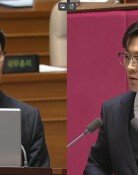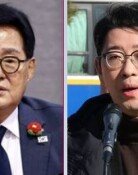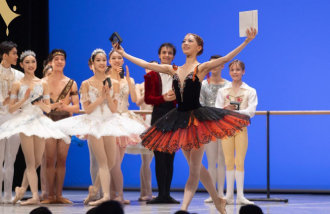BOK warns of possible economic shrinkage
BOK warns of possible economic shrinkage
Posted April. 19, 2025 07:10,
Updated April. 19, 2025 07:10
The Bank of Korea has warned for the first time that South Korea’s economy may have contracted in the first quarter of this year. After lowering its first-quarter growth forecast from 0.5% to 0.2% in late February, the central bank has raised the possibility of negative growth less than two months later. It also suggested that its full-year growth outlook of 1.5%, issued in February, may be significantly downgraded. “It feels like we’ve suddenly entered a dark tunnel,” said BOK Governor Rhee Chang-yong.
The central bank admitted that its February forecast had been overly optimistic. Political uncertainty has worsened as the Constitutional Court ruling on impeachment was delayed, and concerns over U.S. tariff policies have further dampened business sentiment. Unforeseen challenges such as South Korea’s largest-ever wildfires, construction stoppages at several sites, and postponed demand for high-bandwidth memory (HBM) semiconductors have compounded the situation.
The outlook for the coming months is even more troubling. The full impact of U.S. tariff hikes is expected to hit from the second quarter. Signs of strain are already emerging. South Korea’s steel exports to the United States plunged more than 16% in March compared to the same month last year. Just three weeks after the U.S. imposed a 25% tariff on steel and aluminum on March 12, the export shock has become a reality. If the United States follows through on its planned tariffs on semiconductors and other items and enforces the 90-day-delayed retaliatory tariffs, the damage to exports could escalate dramatically. The World Trade Organization has sharply downgraded its outlook for global merchandise trade this year, now forecasting a 0.2% decline instead of the previously expected growth.
Although signs of economic contraction are becoming more visible, the BOK left its key interest rate unchanged at 2.75% on April 17, constrained by currency risks and real estate market instability. With monetary policy limited, fiscal measures must step up. On April 18, the government approved a supplementary budget of 12.2 trillion won, which needs to pass swiftly through the National Assembly for prompt execution. Though the boost to annual growth is estimated at just 0.1 percentage point, it could provide much-needed relief to struggling sectors.
Politicians focused solely on the presidential election must also recognize that South Korea’s economy is now at a critical juncture. Leading candidates have proposed raising the country’s potential growth rate and per capita income, but such promises need to be backed by actionable strategies. Most importantly, they must resist the populist temptations that could send the economy further off course in an already dark tunnel.







